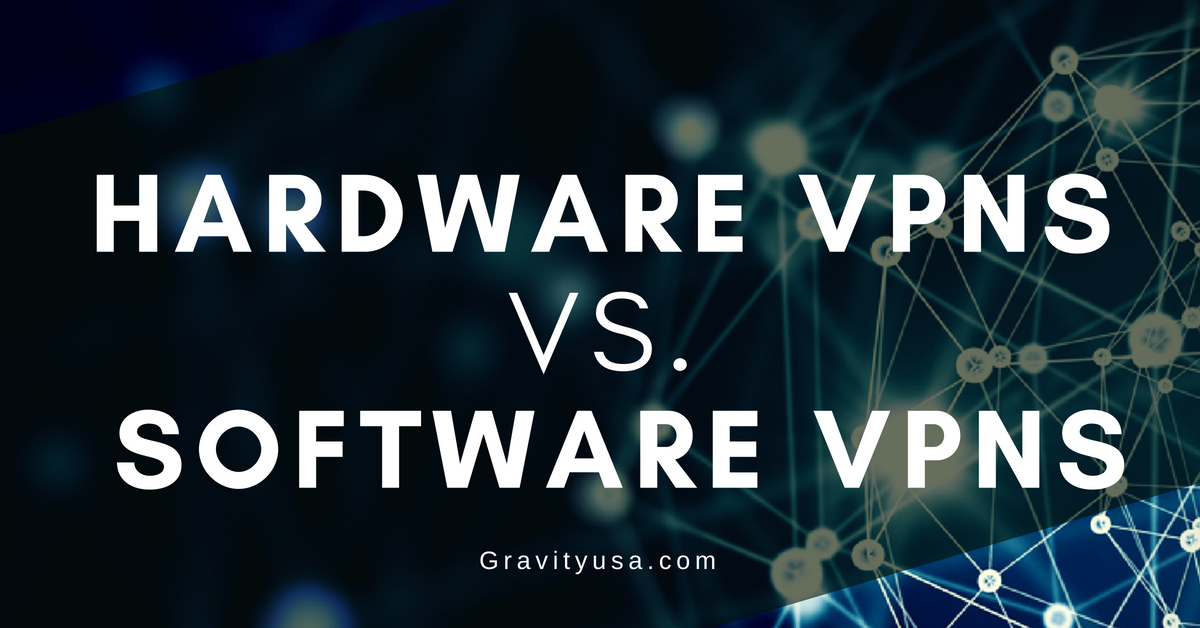You may already know enough about VPNs, or Virtual Private Networks, to know that your business needs one. A VPN, quite simply, is a secure “tunnel” through the Internet, a means of linking users so that their connection is safe from prying eyes (or prying malware). But there's another consideration you may have not yet thought about: the choice between a hardware VPN and a software VPN. There's really no “better” or “worse,” since it all depends on your company's needs – and our Austin tech support team can set up you up with either. So let's just look at some of the pros and cons.
Hardware VPN: A hardware VPN runs your network through a dedicated piece of equipment which has its own processor and firewall. This type is VPN is superior in two primary areas: security and speed. Th fact that the hardware VPN handles only its own functions, rather than running over a general-purpose device, makes it less vulnerable to attack, while its dedicated processor prevents it up gobbling up your servers' CPU cycles. On the downside, hardware VPNs can be expensive, and the more you need to scale up, the pricer that proposition can get.
.png?width=1200&name=Blog%20Size%20(1).png)
Software VPN: A software VPN is an application that runs on a server. The greatest advantages of software VPNs are affordability and scalability. A software VPN will involve a lower upfront investment than a hardware VPN, and scaling up is as simple as upgrading the server components now and then. On the downside, your VPN will be only as secure as the hardware it's being run on, and the processor/memory sharing will probably cause it to lag behind a hardware VPN's speeds.
Gravity Systems can help you choose the right kind of VPN for your needs. Contact us and let's discuss it!
Related Post: Why Your IT System Needs Preventative Maintenance




